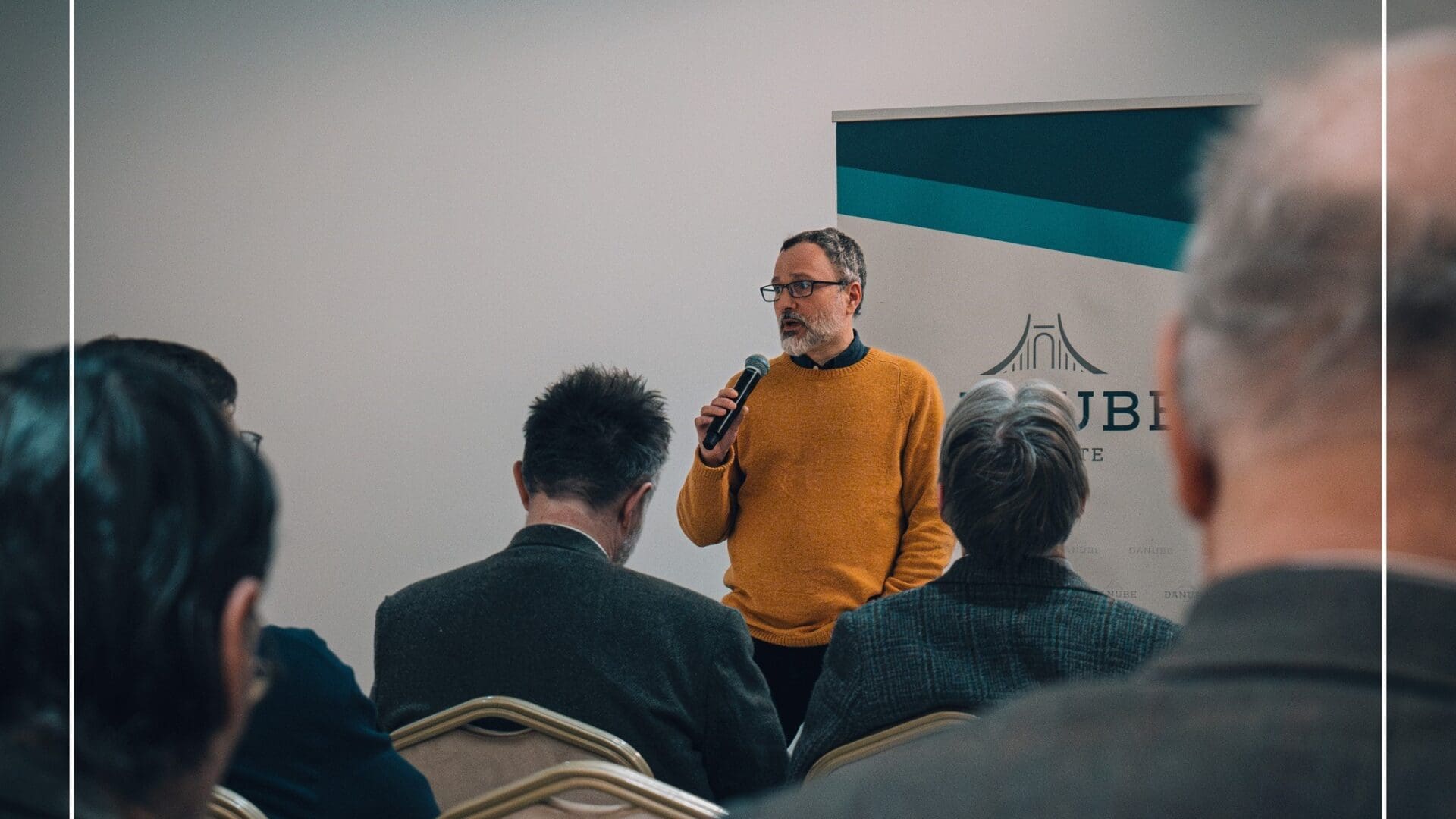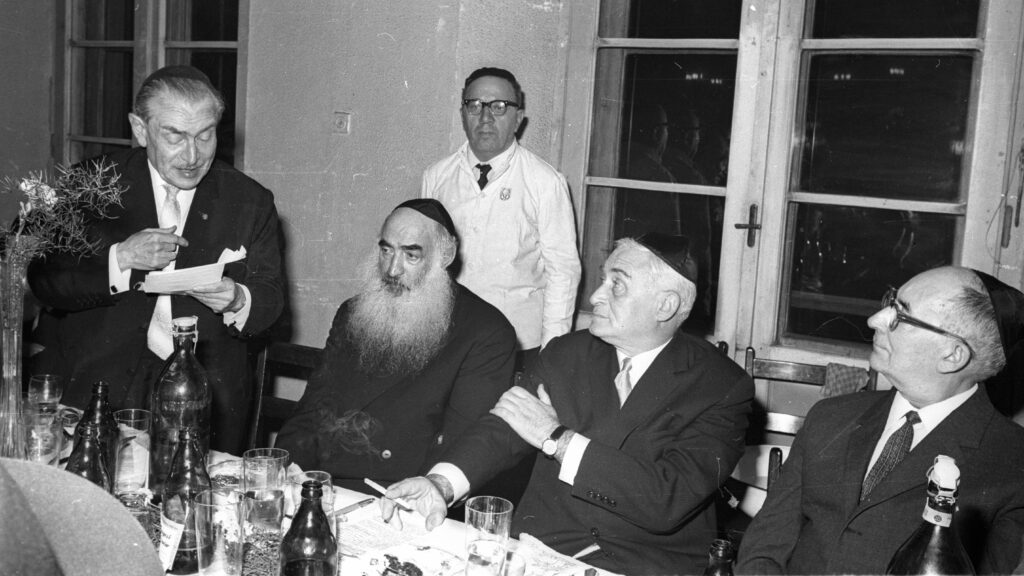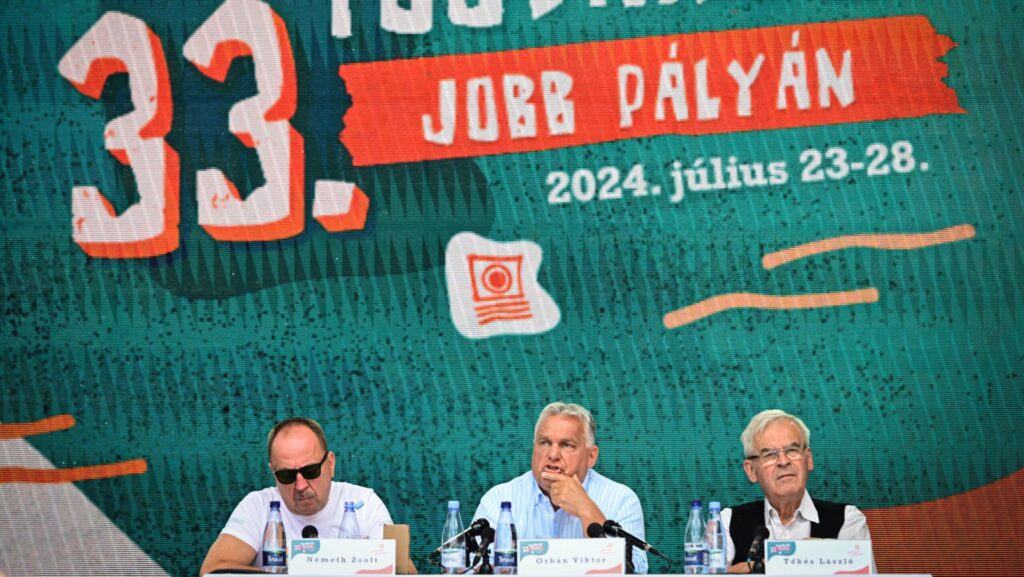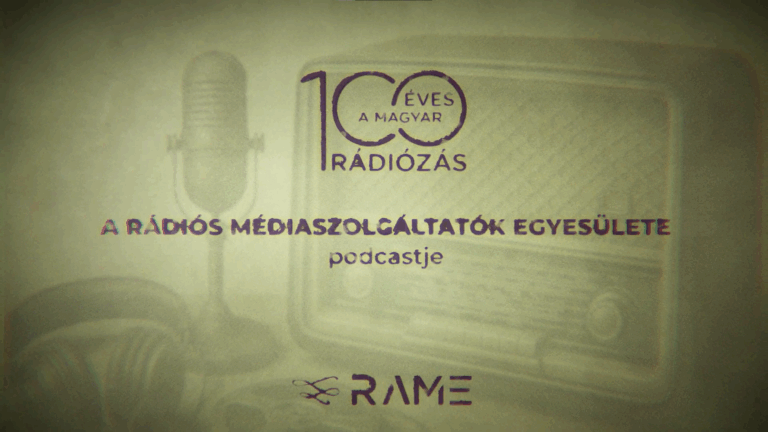On 6 February 2024, an extraordinary event took place at the Lónyay-Hatvany Villa, home of the Danube Institute, where guests were invited to watch the documentary Some Kind of Liberating Effect with the participation of the film’s director Dr Valerio Severino. During the event, several different aspects of science and religion were discussed.
The documentary features researchers and academics from eight countries in Central and Eastern Europe who are experts in the study, history, and teaching of religion. The focus was on the scientific approach to religion; the project was supported by the European Commission’s Marie Curie programme. However, the film can also be seen as a documentary about the communist era through the lens of scholars and academics.
The title of the film suggests that religion has had a liberating effect in the region and that this effect is the film’s central theme. However, it is only partly true. The first half of the film does indeed portray how, under communism, religion and the churches were suppressed and how the state tried to eliminate them. Nonetheless,
the central message of the film is the freedom of science.
In the first part, the academics talk about how they came into contact with religion and its scientific approach. Surprisingly, most of them were not particularly religious—nevertheless, they were interested in researching churches labelled as belonging to the past and old-fashioned. In some cases people first encountered religion in the field of scientific atheism and began to study the subject in more depth. For some, the academic study of religion was a way of experiencing freedom; for others, it was a way of resisting the system. This part of the film presents that no matter how the regime tried to oppress religion from above, it could not work. Similarly, attempts by communist regimes to turn academics against religion and thus subject them to propaganda proved counterproductive. In this sense, religion did have a liberating effect on their lives, often in small micro-communities.
After the regime change, churches suddenly found themselves in a dominant position again. However, alongside the obvious benefits, it has raised other concerns. During the period of repression, despite persecution and stigmatization, the community of believers hardly shrunk at all, but this was no longer the case in the 1990s. There were also suggestions that the scientific approach to religion did not excite church leaders or political actors. At this point, the film shifts more and more towards examining scientific issues. The scientists interviewed explained that for them, scientific freedom was vital. However, many expressed doubts about whether it would play such an important role for future generations. The final thought of the film comes from a Hungarian professor:
freedom often comes from within, sometimes quietly and silently, in the form of a smile.
In a panel discussion after the screening, the director was joined by Research Director of the Danube Institute David Martin Jones and Visiting Fellow Rod Dreher, who shared their thoughts on the subject. Topical issues such as the separation of the Ukrainian Orthodox Church from the Russian Orthodox Church in the wake of the war and the importance of ensuring academic freedom were discussed. The audience’s questions were followed by contributions from people who are themselves academically engaged with religion. The event thus explored, in a rather unconventional way but from several angles, a topic that has been highly controversial in the region over the last century. As the academics highlighted, the study of religion has opened up a whole new world for them and is closely intertwined with the issue of scientific freedom.








